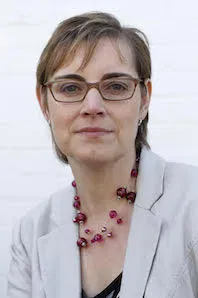CAFOD: Overseas Aid missing in Rachel Reeves' landmark Budget

Christine Allen
Source: CAFOD
Responding to today's Budget announcement, Christine Allen, Executive Director of the Catholic aid agency CAFOD, said: "While we applaud history being made by the first female Chancellor today, it was disappointing to see no reference to Overseas Development Aid (ODA), which has been slashed and pillaged in recent years, with 28% of the aid budget spent on asylum seekers and refugees within the UK last year[i]. If a bonus allocation to cover these costs is not forthcoming, the help we give to other countries could fall to its lowest level since 2007.
"Turning our back on countries facing conflict, famine, unsustainable debt[ii] and the crippling effects of climate change is not who Britain is. The Humanitarian Response plan for Sudan, for example, remains critically underfunded, despite it facing the world's largest humanitarian crisis.
"Put simply, any fall in ODA means more people dying overseas - or risking their lives attempting dangerous journeys to the UK and other European nations.
"The government has been clear it wants 'more equitable partnerships with the global South' so we maintain our hope that it will do the right thing. Pope Francis's Year of Jubilee in 2025[iii] - traditionally a time to reset inequality - is a chance to pass much-needed legislation[iv] that would prevent private creditors from refusing to participate[v] in life-saving debt relief - a move that would not cost the UK taxpayer anything[vi]."
Speaking during a visit to London, Monsignor Donatien Babula Nshole, Secretary General of the Catholic Bishops Conference in the Democratic Republic of Congo, said: "The UK has been a long-term aid supporter in my country, the DRC, and in many others around the world. But reductions in overseas aid bring about suffering and loss of life in the communities our churches serve. If the UK wants to be a global leader, and continue to be recognised for working in true partnership, then now is the time to step up."
LINK
CAFOD: www.cafod.org.uk
Reference information
1. Report by the Independent Commission for Aid Impact (ICAI) 10 April 2024
2. 3.3 billion people are currently living in countries that are paying more to service international debt than on health or education. Today, there are 54 low-income countries facing unsustainable debt levels, up from 22 in 2015.
3. The Jubilee 2000 Debt Campaign resulted in more than $100 billion of debt cancellation for the world's poorest countries. Jubilee 2025 is an essential opportunity, a quarter of a century later, to build on the life-changing progress that was made then, by reforming global debt structures to prevent future crises.
4. Since 90% of debt owed by developing countries to private creditors is governed by English law, the UK could make a real difference by implementing proper private creditors legislation.
5. Almost half of the total external debt owed by lower income countries is to 'private lenders, who often lend recklessly, and with no accountability, and as a result make huge profits.
6. If these institutions were compelled by law to take part in debt restructuring on the same terms as governments, it would prevent unscrupulous lenders suing debt-distressed countries for more money and would meet the Labour's commitment to 'clean up the City of London'.


















